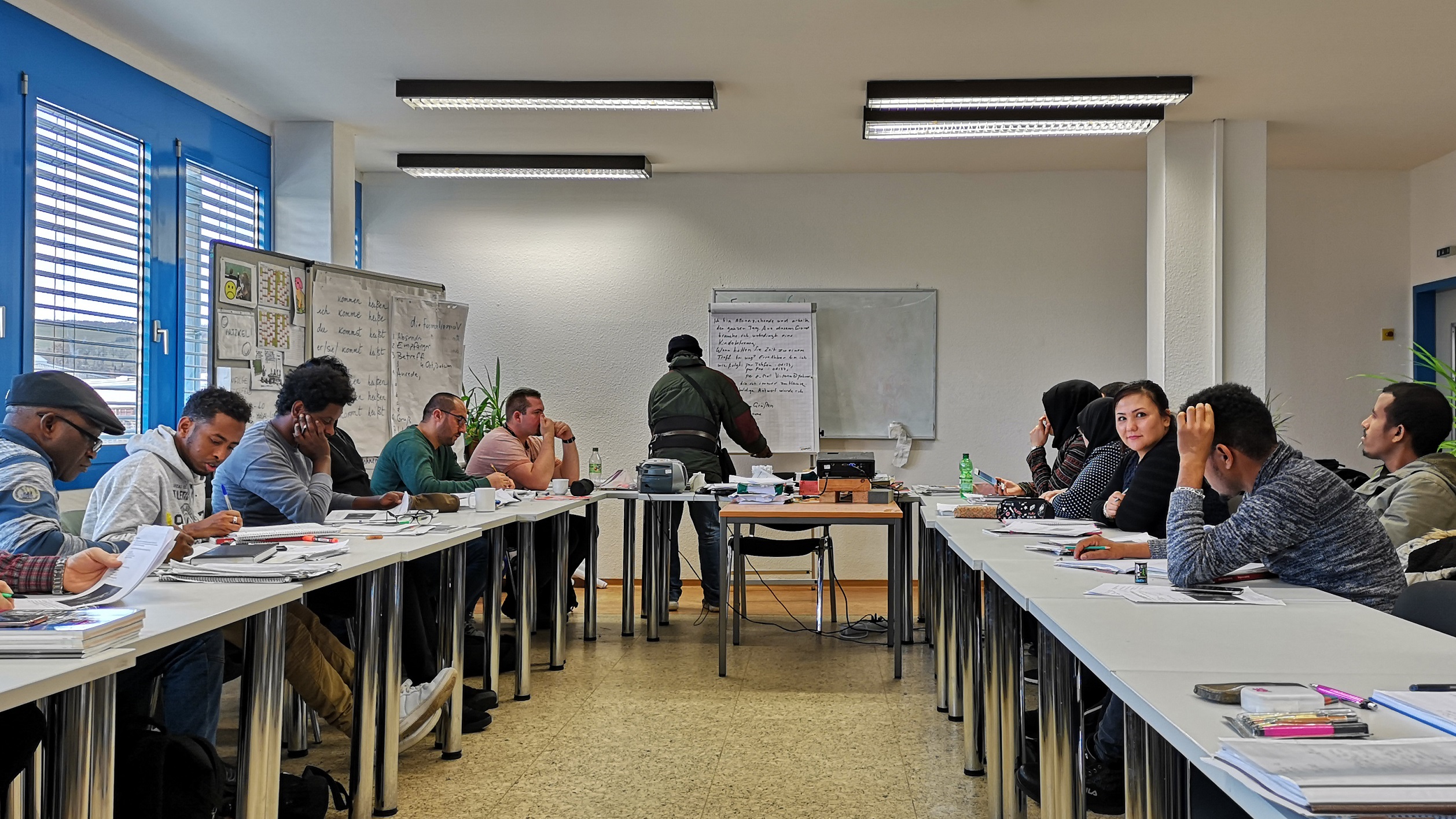Cross-cutting themes
Table of contents
Language and communication
Learning English is key for integration and for refugees to be able to live independently in the UK. Access to English language provision (known as ‘English for Speakers of Other Languages’ – ESOL) is often a priority for refugees on arrival, especially as English language proficiency is usually a prerequisite for further study, retraining or employment. However, learning English is also important in the broader sense of integration, to enable refugees to settle in the new community and get by in daily life - to make friends locally, ask for help, go shopping, book an appointment with a GP, or discuss their children’s education with a teacher.
Assessments for English language level need to be conducted as soon as possible after arrival. However, refugees can face a number of barriers in accessing ESOL provision, including restrictions on eligibility for some in the asylum system. Some areas have limited English provision, and formal provision can be daunting for refugees with little or no prior experience of education or limited literacy. Trauma, which many refugees will have experienced, can impact on their ability to engage with learning and course content often does not reflect refugees' lives. Additionally, lack of accessible childcare prevents some carers, especially women, from attending ESOL sessions.

Yorkshire and Humber has a wide range of English language provision available for refugees including formal, informal, accredited, unaccredited, class-based, community settings, one to one support and conversational opportunities. The region benefits from good information resources that list ESOL provision in all local areas, and good practice is shared regularly through a regional network of ESOL providers and practitioners. However, there are still gaps in provision in some parts of our region and there is a need for more ESOL provision overall. It is therefore important that language providers work collaboratively to ensure refugees are signposted to the most suitable local ESOL provision, providers adapt current provision to reflect the needs of refugee leaners, and ESOL commissioners target future funding to address any gaps in provision. Refugees also need more access to guided self-study and opportunities to practice English to help speed up the learning process.
Many refugees require additional language and communication support, and it is crucial that service providers use good quality and professional interpreting and translation needs. The cost of such services is cited as a barrier by some providers, but not providing them can increase disadvantage and isolation in refugee communities and is a major barrier to accessing services. There are several negative impacts of providing poor or no interpreting, especially in safeguarding and healthcare contexts.
If I don't go to college, I will not be able to communicate, I won't know how to be part of the community, get a job... if I can't communicate or speak, I will have so many difficulties supporting my children
Interpreting services must meet the needs of individual refugees and asylum seekers, including dialect and gender, and, in order to maximise the benefits, frontline staff should always be trained in using interpreters. Community interpreting can be a solution in many settings, and at the same time offer some refugees a route into training and employment. It is essential that refugees understand what is being communicated to them so they are able to engage fully, make informed choices, or give consent, and that must include, where possible, translated resources in accessible formats.
Digital inclusion is key to communication, especially with the increasing reliance on online service provision. Refugees and asylum seekers often have limited digital skills on arrival in the UK and may also lack digital devices or connectivity at home. It is crucial refugees are supported to develop their digital skills and access digital devices as soon as possible, so they can access online services and support for their integration. Additionally, these skills and connectivity are important for refugees and asylum seekers to maintain relationships with friends, family, and communities.
Language and communications priorities
-
The English language needs of refugees and asylum seekers are assessed as soon as possible after arrival in the region using consistent and comprehensive tools
-
All types of ESOL provision across the region are effectively mapped and promoted, and refugees can access suitable provision locally
-
Refugees and asylum seekers have access to a range of ESOL provision that is suitable to their individual needs and aspirations, including informal learning opportunities
-
Services and organisations provide suitable, good quality and professional interpreting and translation services, including translated resources in accessible formats
-
Refugees and asylum seekers are digitally included, and have the required skills, equipment and connectivity to access services and support online
